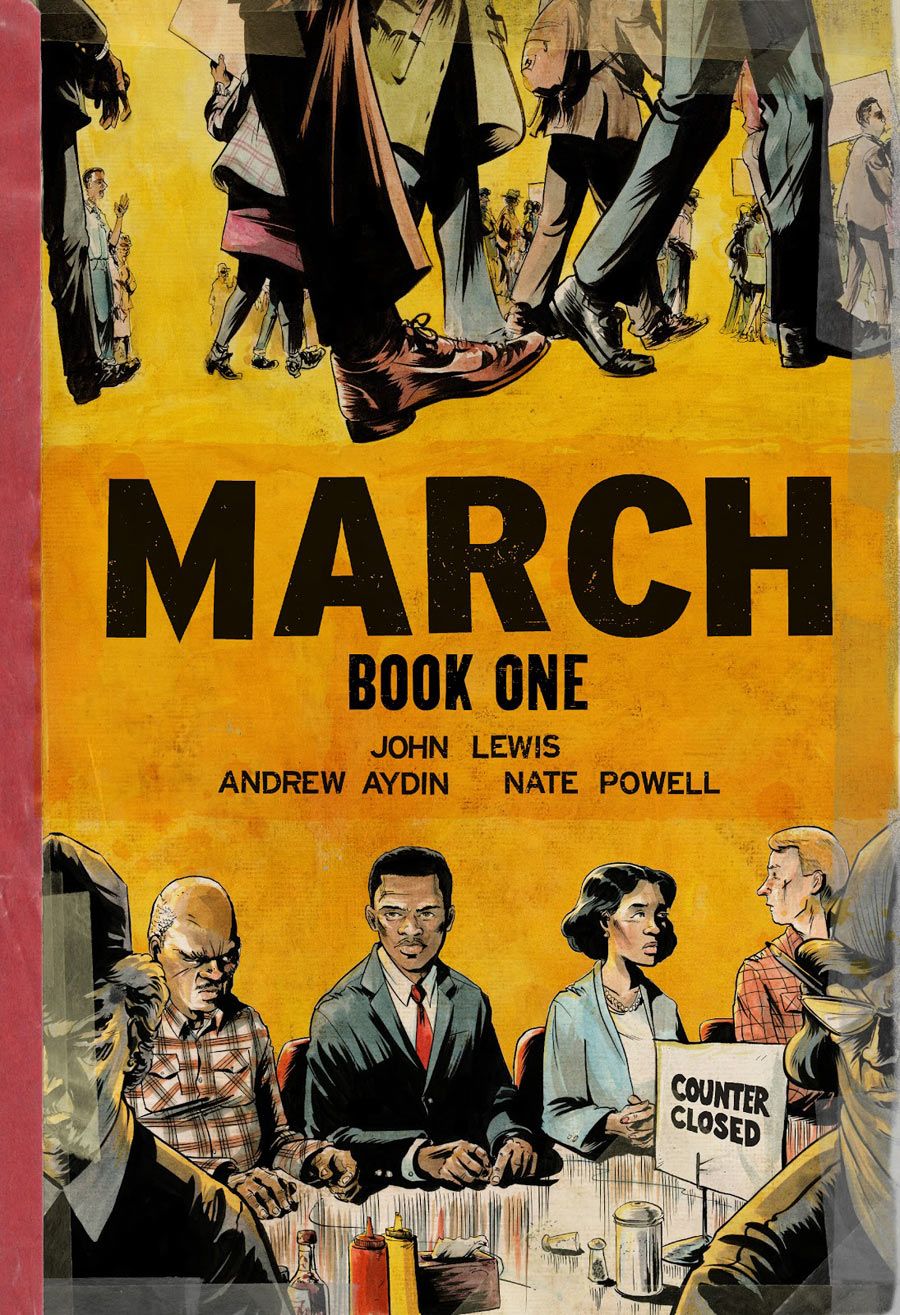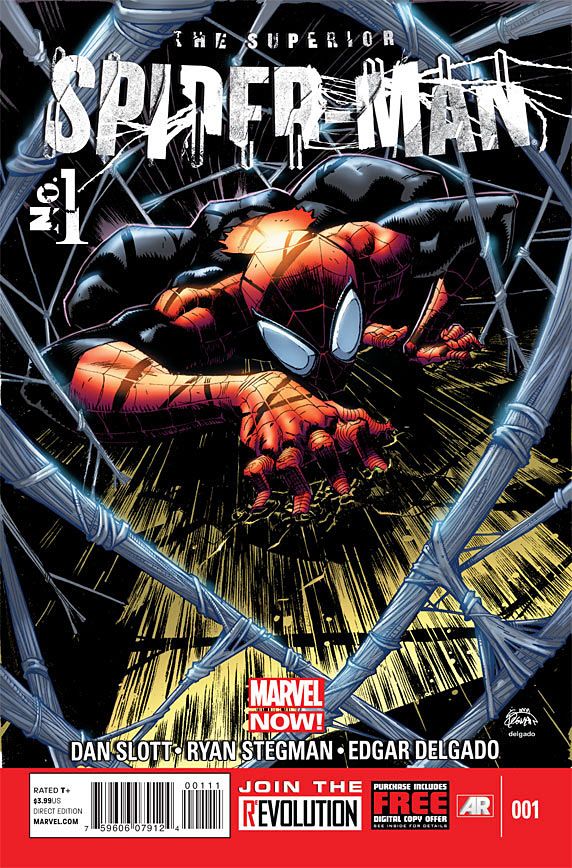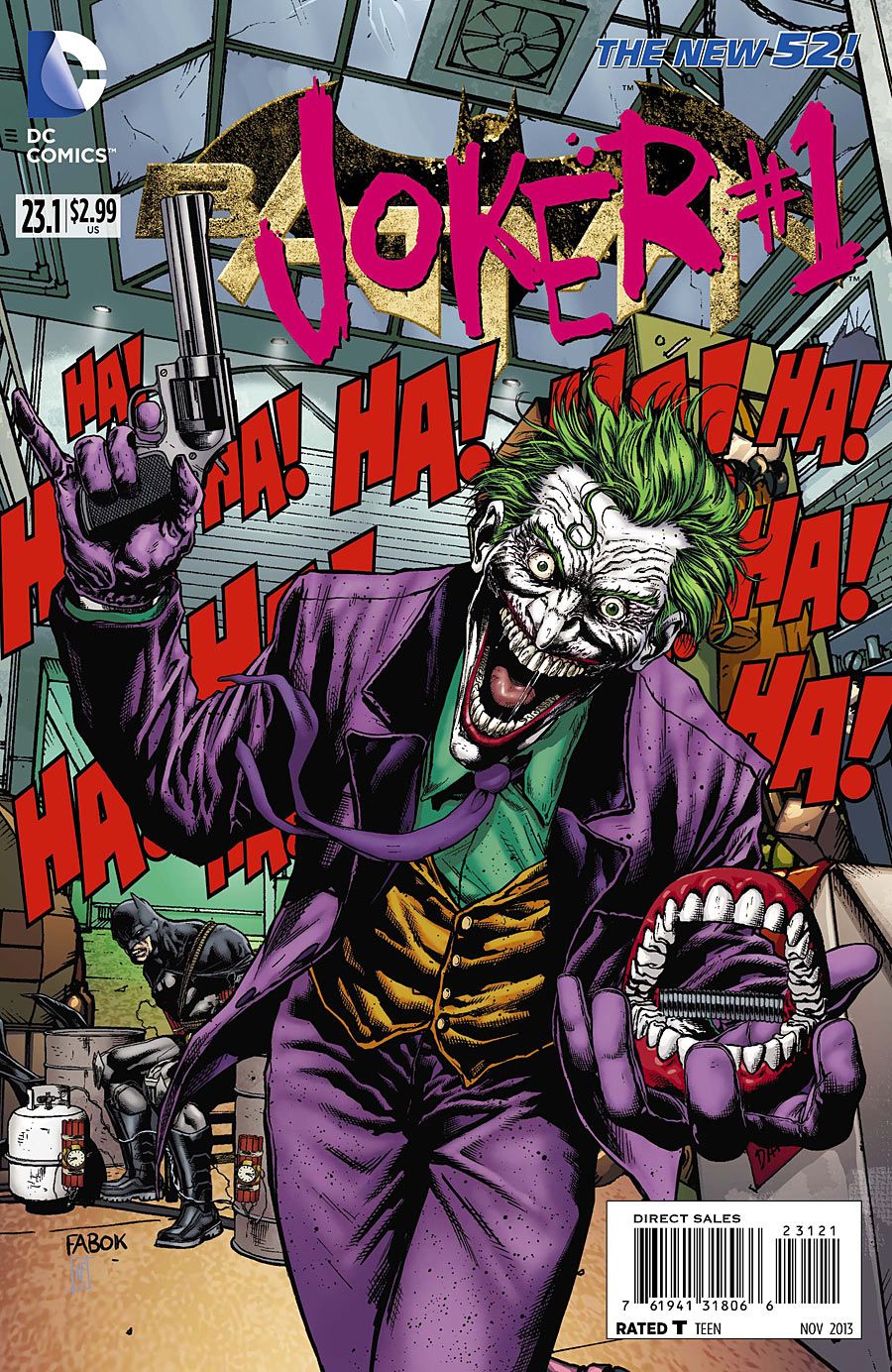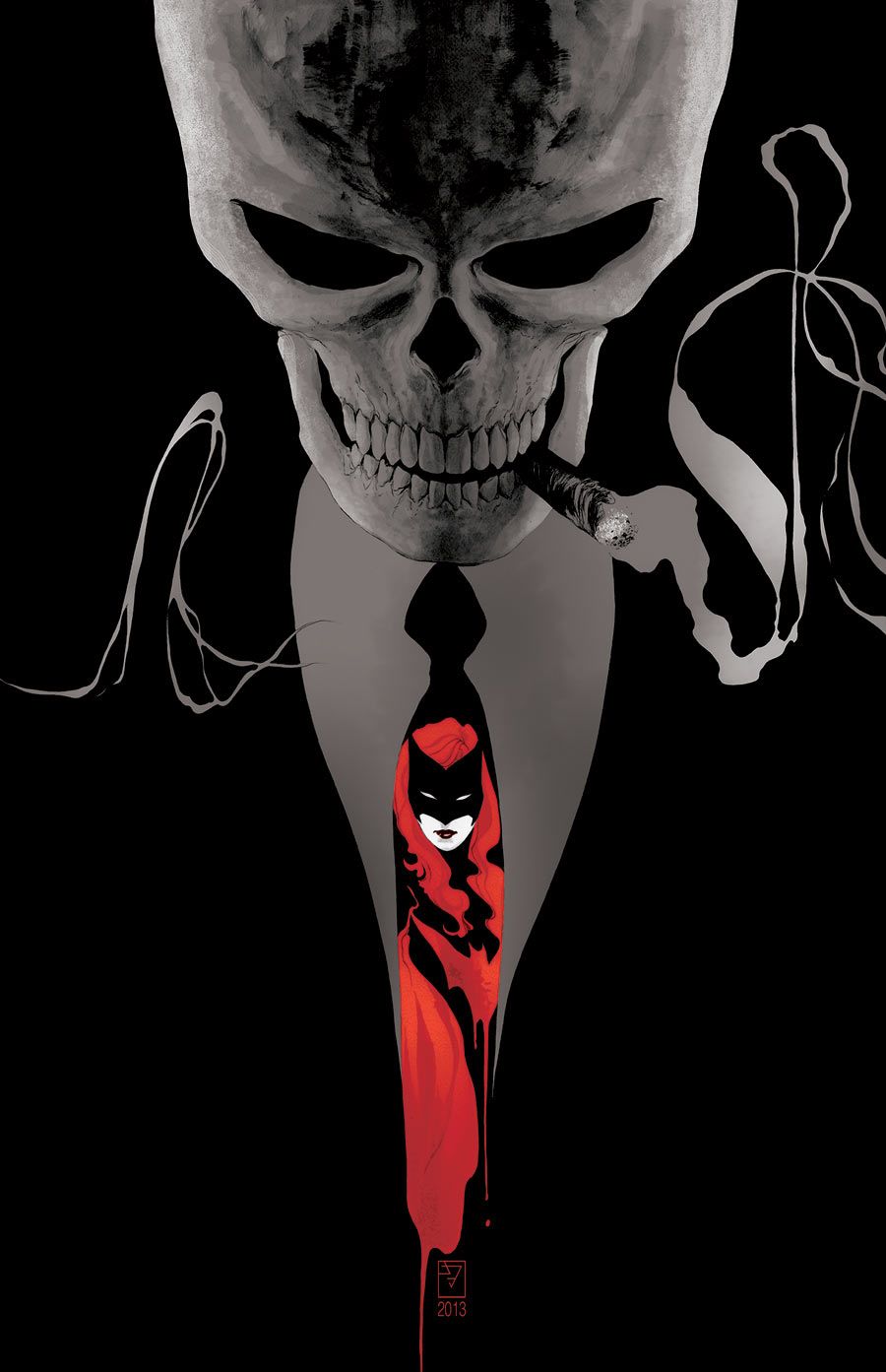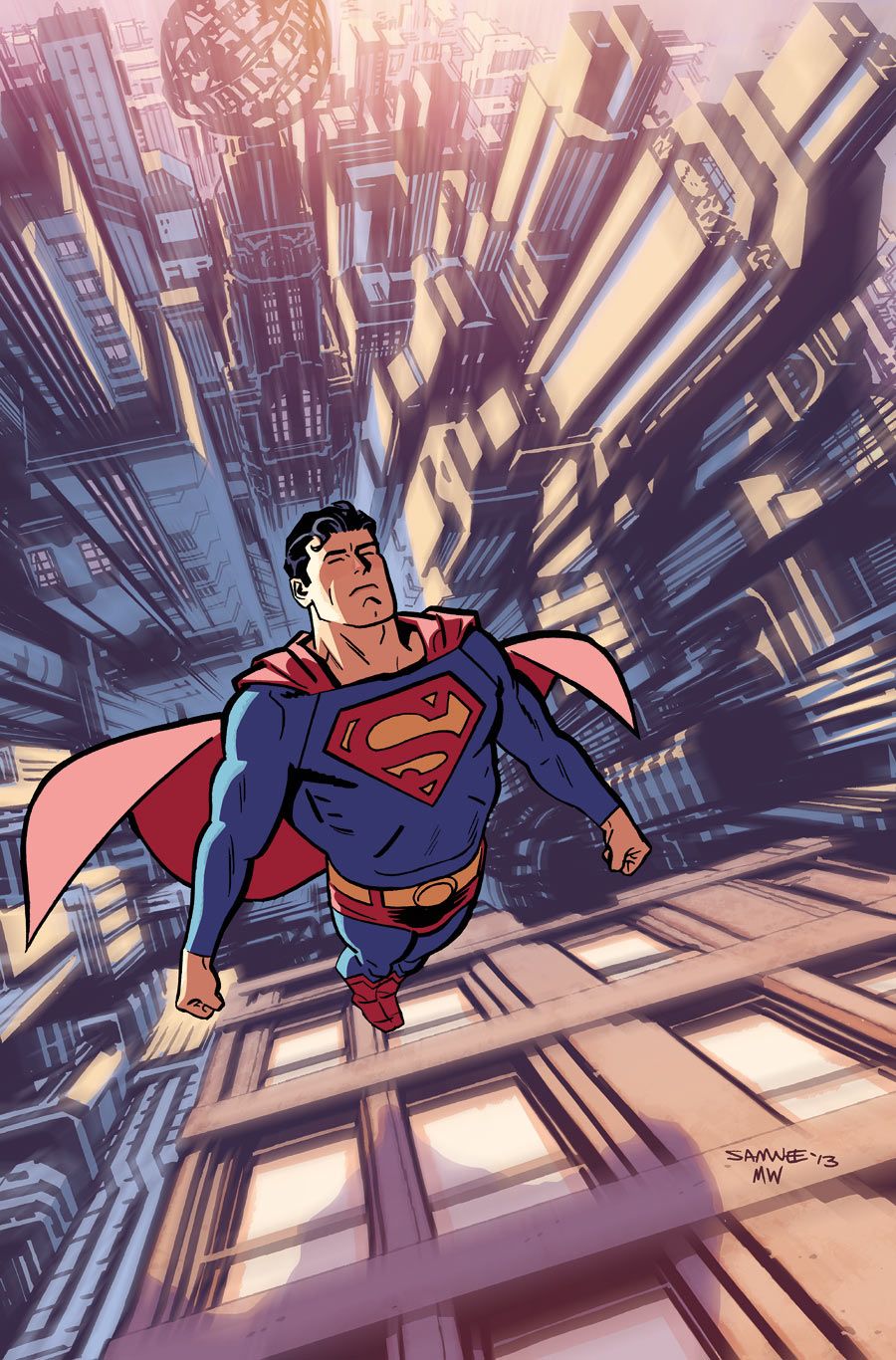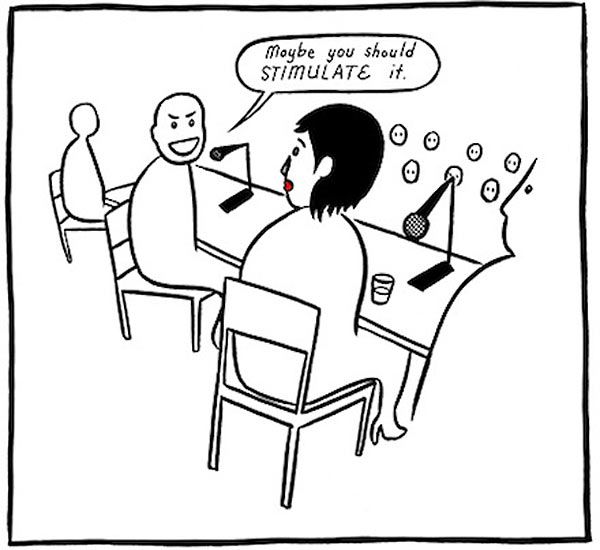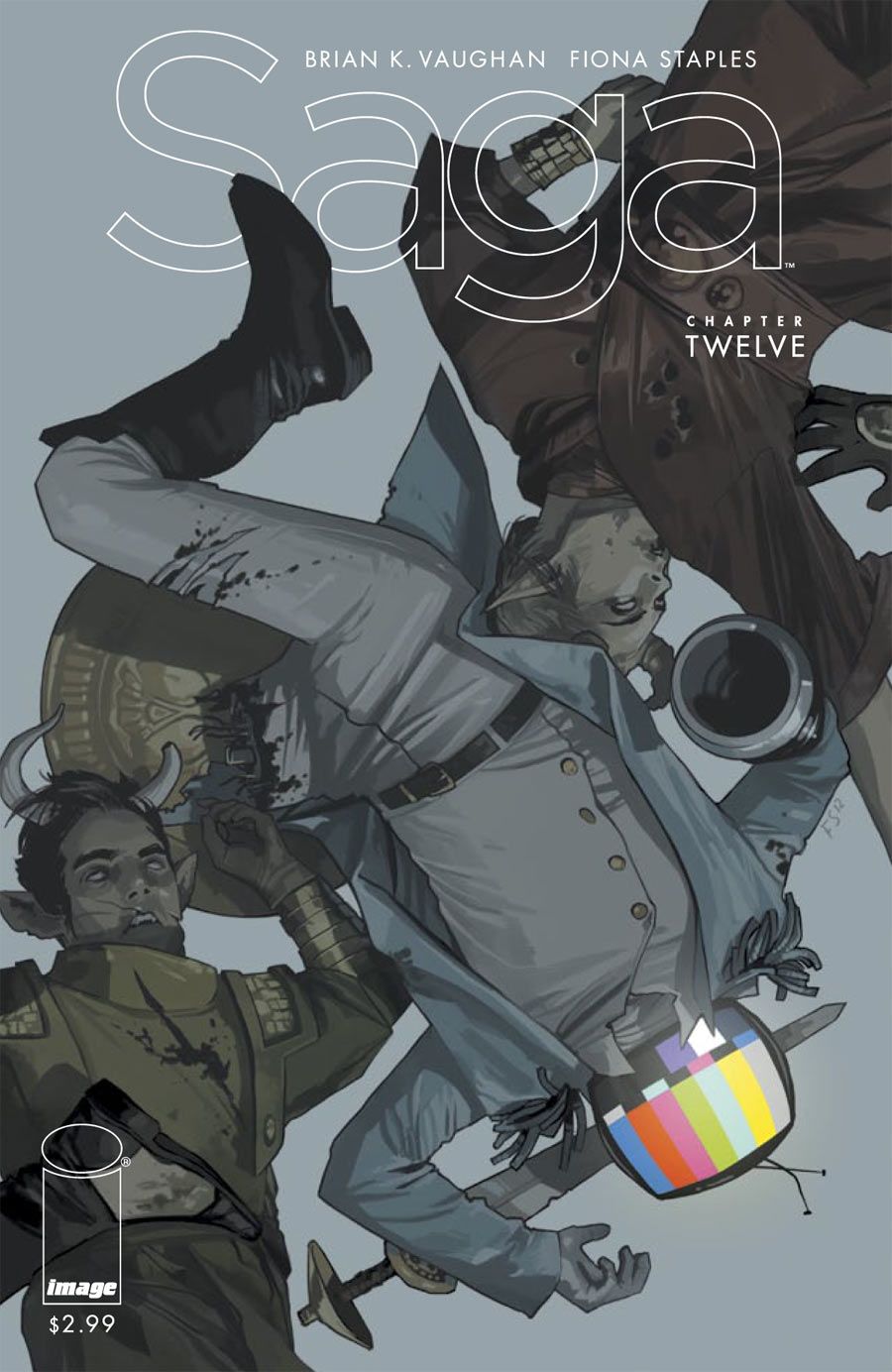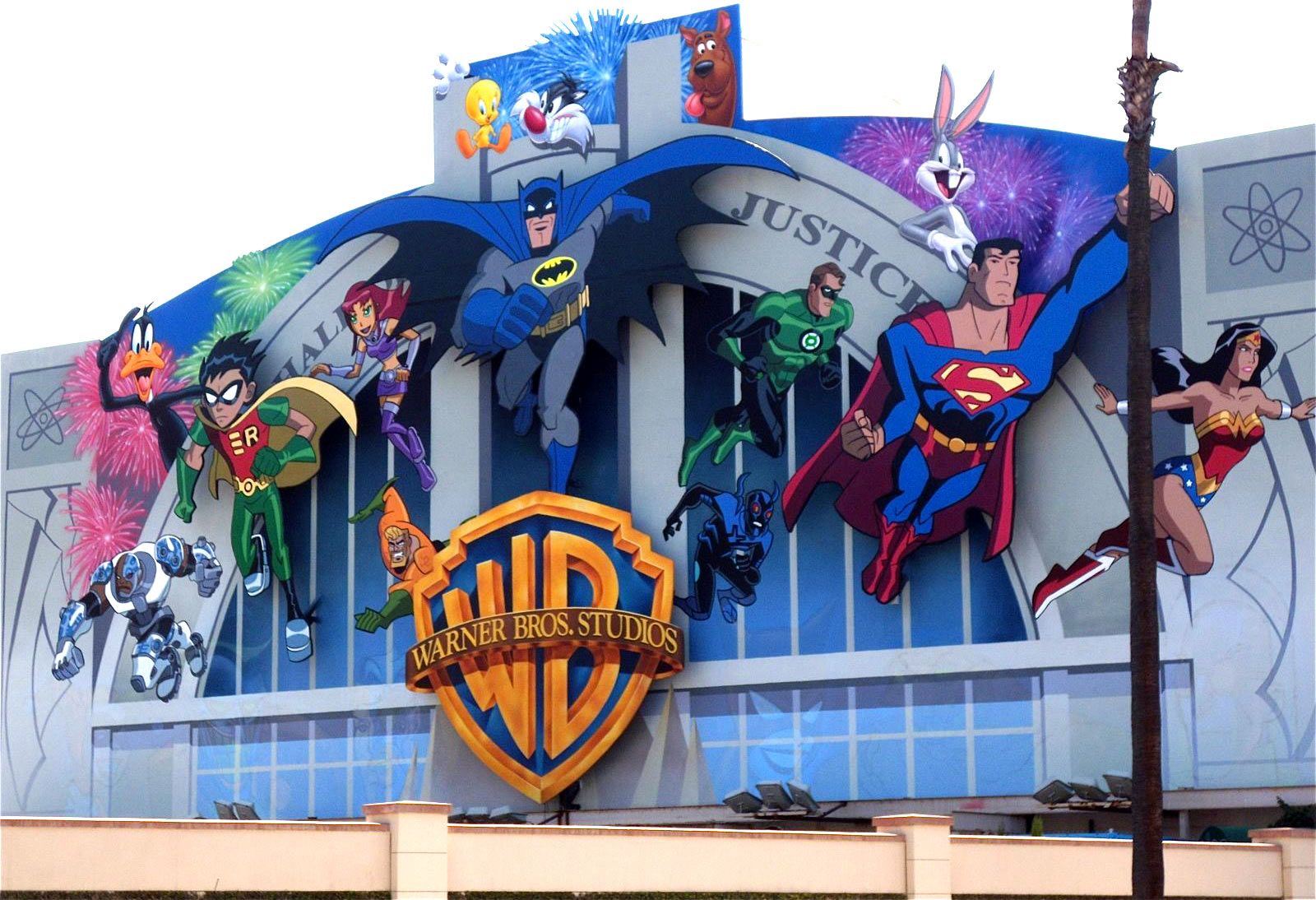This story was co-written by Senior Editor Albert Ching
As a torrent of publishing news already starts to hit the web just days into 2014, CBR News takes one last look back at the year that was with our traditional Top 10 News Stories of the Year countdown!
2013 was a growing year for the comics industry in many ways. In a general retail sense, the direct market which serves as the economic backbone for the industry saw another 12 months of rising growth. More and more comics were released in digital format, as well, from pay-what-you-desire releases to the now ubiquitous tablet-ready offerings from major publishers to experimental comics posted on social media platforms like Tumblr. The convention calendar continued its slow and steady march, eating up nearly every available weekend from coast to coast. And in a bigger, more ideological sense, discussions on creator's rights, new financial models and our professional conduct as a community remained lively, sometimes painful and often helpful in terms of building a stronger, more responsible community.
So as we head full-bore into a new year, CBR has ranked its Top 10 News Stories from 2013. This is by no means an exhaustive list of every important thing that happened to comics in the past 12 months, but rather an overview of events, actions, discussions and more that we felt left an impact on the industry and will continue to affect us all in the future.
10. "March" Is A Mainstream Media Success
Given the honored place that Civil Rights pioneer Congressman John Lewis holds, not just in the media but in American culture at large, and the fact that his comics memoir was published to time with the 50th Anniversary of the March on Washington, it should come as no surprise that Top Shelf Productions' "March, Book One" made a splash outside of comics. But even in an era where major comics news regularly breaks through to major media outlets, the volume by Lewis, co-author Andrew Aydin and artist Nate Powell had an exceptional year.
Aided by Lewis' skills as a powerful speaker for his ideals and about his life, "March" made a splash everywhere, from Comic-Con to Book Expo America and from "The Colbert Report" to "The Rachel Maddow Show." The resultant sales Top Shelf reported after each TV appearance Lewis and his collaborators made likely mean that scores of Americans read their first comic in years (if not ever) thanks to "March," and it's hard to imagine a better steward for the medium than that. Meanwhile, Top Shelf deserves kudos not just for putting such a project together but also for finding new ways to market the book, including a digital package which came with the iconic 1957 comic "Martin Luther King and the Montgomery Story" and distributing free digital copies of the book to every member of Congress.
REALTED: Congressman Lewis, Andrew Aydin Revisit the Civil Rights Movement in "March"
9. Shia LaBeouf Rips Off Daniel Clowes
It was a late breaking story in 2013, but the revelation of "Transformers" actor Shia LaBeouf's plagiarizing Daniel Clowes' comic "Justin M. Damiano" in blatant fashion for his short film "HowardCantour.com" was definitely the strangest story of the year. Aside from the stunning gall and/or total lack of connection to reality the move represents, LaBeouf's plagiarism quickly turned from ethical blunder to outright farce after it was revealed that he also plagiarized his first apology to Clowes, his 2012 mini comics, his personal website and (in 2014) the majority of an online interview on the matter with Bleeding Cool.
With his most recent move of apologizing via Los Angeles sky writing mixed with his continued arrogant Twitter presence, it appears LaBeouf is trying to have it both ways. On one hand, it seems as though he'd actually like credit for a sincere apology, but on the other hand, he's attempting to recast his theft as some kind of social commentary/artistic statement. Neither attempt holds up to any close scrutiny. Anyone with access to Google can now see that the actor's entire solo creative output is the result of little more than lazy theft. As to whether that theft is technically illegal, Clowes and his lawyers may find out in 2014.
LaBeouf's "Apology" Draws Criticism as Clowes Mulls Legal Options
8. Superior Spider-Man Makes Fans Angry, Sells A Lot Of Comic Books
2013 was effectively a year without Peter Parker at Marvel Comics. At the tail end of 2012, the publisher released "Amazing Spider-Man" #700, which saw an already frail Doctor Octopus die at the hands of archenemy Spider-Man -- the only snag being that they had switched bodies just prior to that. That led to the January launch of new ongoing series "Superior Spider-Man", with Doc Ock in the driver's seat of Peter Parker's body, doling out his own, brutally-effective brand of superhero justice.
Comic book fans don't always take a "wait and see" approach, and removing one of the biggest icons from the board -- even for a little bit -- due to a victory by one of his greatest villains was bound to get at least a few people upset. It did, and they were rather vocal about it. Those who didn't like the move treated it as a hostile act of comic book warfare, and series writer Dan Slott, the architect of the storyline, was reported to have received death threats over the fictional events.
CBR TV: Slott on "Superior Spider-Man" Plans, "Goblin Nation" Dangers
Then in, an even bigger twist, when the comic books actually came out, people liked them. Skeptics remain (there are still people angry about the Clone Saga, after all), but "Superior Spider-Man" was one of Marvel's biggest success stories of 2013, both financially and critically -- with the twice-monthly book frequently taking up two spots in the top 10 of the monthly sales charts, along with netting year-end praise from outlets including Salon, USA Today and a Top 20 position on CBR's own Top 100 of 2013 list.
With "Amazing Spider-Man 2" scheduled to hit theaters in May, it's been speculated that the "Superior" era may reach its end in the near future. While an eventual Peter Parker return is perhaps inevitable, 2013 showed that a bold change to a beloved major character can be embraced -- despite how many readers say they hate it -- if it's handled in a suitably thoughtful and creative fashion.
7. Fantagraphics Kim Thompson Passes Amidst A Changing Alt Comics Landscape
Comics lost one of its most beloved figures and an irreplaceable talent this year when Fantagraphics co-publisher Kim Thompson lost his battle to cancer in June. The emotional impact on the alternative comics community and the industry in general was felt immediately, with an outpouring of tributes, remembrances and reappraisals of Thompson's decades of work discovering new comics talent and translating some of the cornerstone works from Europe and beyond to English for the first time.
But beyond the incalculable creative hole which now exists in the alt comics landscape, Thompson's passing ultimately served to highlight the precarious position that the more literary end of the comics business now stands on. By the year's end, Fantagraphics announced a massive (and successful) Kickstarter campaign to cover losses which piled up in the wake of Thompson's death, and just last month, Picturebox, Inc. publisher Dan Nadel shocked readers by announcing he was folding the company for personal reasons.
RELATED: R.I.P. Fantagraphics Co-Publisher Kim Thompson
These two stories are only the tip of the iceberg when it comes to how alt comics makers will navigate the future ahead of them. That business is now years past a day when talented cartoonists could expect big payouts from major book publishers or even long-standing publishers could necessarily remain financially solvent thanks to crossover projects or classic comic strip reprints. At a basic level, those willing to pursue their creative goals in comics at all costs have to worry about making ends meet over the long term more than they might have imagined a decade ago. The legacy of Thompson, for all its amazing artistic achievement, leaves questions as to who will step up and carry this vital segment of the artform for another 30 years and beyond.
6. Villains Month Annoys Retailers But Continues DC's September Success
DC Comics had a very successful September 2011, with the debut of The New 52 and the relaunch of their entire DC Universe line of titles with new #1s. The publisher followed up its September success a year later with "Zero Month," rolling back each series to #0 and providing a look at the early days of each title character.
For its second follow-up in September 2013, DC announced "Villains Month," where regularly scheduled books would be put on hold and replaced with 52 one-shots starring the company's biggest bad guys. Additionally, each issue shipped with a 3D motion cover, a flashy promotional move hearkening back to the '90s, when such practices were more common.
"Forever Evil" - DC Comics' Bad Guys Take Over in September
Early gifs showing off the covers stirred fan interest, but it was subsequently announced that the covers would be allocated, due to not being able to meet the demand at the printer. Predictably -- and understandably -- this upset retailers, a number of whom were already less than excited about the concept.
Yet "Villains Month" ended up a huge sales success for DC, who once again dominate the month of September, and retailers polled by CBR nearly unanimously reported an uptick in sales from average months. Though, not everyone was entirely pleased: "They didn't even have faith in their own event or promotion," said Jason Leivian, owner of Floating World Comics in Portland, Oregon. "They ordered conservatively, ask retailers to take a risk on a bunch of random titles with different creative teams, then didn't have enough to meet demand. Then they get to benefit from the perceived scarcity, creating a rush for these 'limited' covers. Basically being rewarded for making a mistake."
5. JH Williams III "Batwoman" Exit Caps A String of DC Editorial Conflicts
Perhaps the most surprising thing about writer/artist J.H. Williams III and his co-writer W. Haden Blackman quitting DC Comics "Batwoman" title over the publisher's refusal to let them feature a wedding in its pages was the fact that it wasn't that surprising. Though Williams was one of the most high-profile creators to leave a DC title over editorial disagreements, he was hardly the only one. 2013 alone saw writer Andy Diggle leave "Action Comics" before his first issue had even hit the stands, and writer Joshua Hale Fialkov leave the "Green Lantern" franchise before he'd written a script (reportedly due to an Editorial mandate to kill GL John Stewart). Add that to a number of other smaller creative replacements and a general unease DC Editorial has had discussing staffing moves in public, and a clear picture develops.
Today's DC Comics is an editorially-driven company. This doesn't mean that every idea that makes it to the page in the New 52 is editorially generated or dictated. Plenty of creators have gone on the record, praising the support they get from the publisher. But across 2013, members of comics creative class became acutely aware that to work for the publisher was to fully embrace the pitfalls of work for hire.
Williams, Blackman Leave "Batwoman," Cite Editorial Interference
4. "Adventures of Superman's" Orson Scott Cardtroversy
When DC Comics announced the lineup of contributors to new digital-first anthology series "Adventures of Superman" in February 2013, fans were excited to see creators like Jeff Parker and Matt Kindt take on the Man of Steel. Yet one name met a much less favorable reaction: "Ender's Game" writer Orson Scott Card.
Card had written comic books before, dating back to 2005's "Ultimate Iron Man" for Marvel Comics. He also has made his unyielding anti-gay marriage stance abundantly clear for decades. But while his initial comic book efforts were met with some scattered objections, the news that Card was co-writing a Superman story quickly ignited a firestorm of petitions and protest.
OPINION: Orson Scott Card Hiring Sends Mixed Signals to DC Comics' LGBT Fans
It was likely a combination of factors that magnified the response this time around -- the fact that someone actively looking to restrict personal freedom was writing a character associated with strict moral fortitude and justice for all, the increased ease of spreading a message via social networking platforms and word that Card served as a board member of the National Organization for Marriage, a group actively seeking to strike down pro-gay marriage legislature. The boycotts and furor hit the mainstream media, and not long after, artist Chris Sprouse removed himself from the story, and it's remained in limbo since.
The situation also affected the promotion of the "Ender's Game" feature film, with the author noticeably absent during the movie's publicity tour, and his name downplayed in official promotional materials. Released on Nov. 1, as of press time, the film, with a reported $110 million production budget, has grossed $88.6 million worldwide.
3. Comics Confronts Its Sexual Harassment Problems
There is certainly a sensational way to cover the sexual harassment allegations that hit the comics community towards the end of 2013. Reported incidents like Brian Wood's interactions with cartoonist Tess Fowler to Scott Lobdell's conduct on a public panel with cartoonist MariNaomi engage the part of the human brain that likes to dig into the dirt of people's personal lives or cast holier-than-thou aspersions on others. But the discussion to be had around these reports should be less about the salacious particulars of single incidents and more about a pervasive, often unspoken reality, of how men treat women in the comics community.
RELATED: On Sexual Harassment and Bad Behavior in General
Yes, harassment exists everywhere, and yes, the responsibility for such actions ultimately falls on individuals who make their own choices. But to pretend that comics doesn't have a problem as a professional community where women are often made to feel marginalized and mistreated -- or worse yet, forced out of positions they deserve due to their talent and hard work -- because the men at the top of the pyramid perpetuate the current climate is absurd. Comics has been a boys club for too long in some of the worst ways possible, and its on all of us to improve our reputation and make the industry a safe place for women creators, fans and professionals.
A good start noted by many would be for conventions and events across the country to better promote or fully revise their harassment policies so anyone who's made to feel uncomfortable at a show knows exactly who to seek for help. Further, people in high-ranking positions, whether in publishing or in the creative community, need to speak out to their employees and collaborators on what an acceptable standard of behavior is. But maybe most importantly, it's time for everyone in comics -- the men most of all -- to take a stance against harassment and sexism wherever it rears its head. Fans, creators, retailers and professionals need to speak up when disparaging comments or actions about women take place, especially when said in private conversation or under the auspices of "just a joke." It can be difficult to be the person who opens their mouth and says, "What you're doing is inappropriate," but it's much more difficult to be the person on the receiving end of such behavior. Let's not forget that in 2014.
2. Image Comics Struggles with Apple, comiXology
By nearly all accounts, 2013 was a terrific year for Image Comics -- "The Walking Dead" continued to dominate pop culture on just about all fronts, "Saga" further established itself as a genre-defining hit and new series like "Sex Criminals," "Pretty Deadly," "Black Science" and "Velvet" debuted to and have maintained impressive sales numbers.
Yet the publisher was vexed throughout the year by online censorship issues, a clear sign of growing pains in the digital comics market. In March, Apple blocked Joe Casey and Piotr Kowalski's "Sex" from being sold on the comiXology iOS app due to content concerns, though it remained available on the iBooks app. One month later, "Saga" #12 encountered a similar problem, though it was later revealed that the comic was actually blocked by comiXology itself as a preemptive move, and was later made available on the iOS app.
In November, "Sex Criminals" #2 also received the Apple block, despite issue #1 making it through with no objections, with both issues available for purchase on the iBooks app. At the time, Image stated, "Apple is free to make whatever decisions they deem best for their business, but there's a level of inconsistency here that is difficult for the creative community to understand." Given Apple's deliberately vague standards of what constitutes objectionable content, it appears such incidents will remain somewhat unpredictable. "I say all the time that we're still in the very early days of the digital comics market, so there's really no reason for us to get in lock step with Apple over something that may be irrelevant in a few years' time," Image publisher Eric Stephenson told CBR last month.
Image Publisher Eric Stephenson: "We Want To Be Number One"
1. DC Announces Move to Burbank
Yes, the No. 1 news story of the year is something that doesn't even actually happen until 2015. But the implications for this are huge, and the shifts it represents for comic book publishing as fans have always known it are significant.
Marvel and DC, the big two comic book publishers, have been based in New York City -- the traditional home of American publishing -- for their entire existence. There's a romantic notion that NYC is where comic books are made, even if publishers and especially creators are spread all across the world.
So when DC announced in late October that it was relocating its publishing branch from New York to Burbank, California effective 2015, while it was in some ways an inevitable move following the formation of DC Entertainment in 2010, it was certainly a big deal for sentimental reasons. But it's an even bigger deal for practical purposes. Though it was said at the time of the announcement that everyone in New York would be given the opportunity to move to Burbank, not everyone will want to make that move. There have already been rumors of senior DC editors contemplating moves to Marvel or elsewhere, and both publisher's editorial staff will likely look a lot different come 2015.
Diane Nelson Announces DC Comics Move to Burbank from NYC
The move also represents an even closer tie between DC editorial and its movie and TV productions. Having all of its operations located on the west coast means an even greater focus on synergy between divisions, and as DC looks to ramp up its presence on screens big and small -- the "Man of Steel" sequel looks more and more like a "Justice League" film with each casting announcement, and about a half-dozen DC concepts are in development to possibly join "Arrow" on TV -- it's certainly appears that's a priority.
It also raises the obvious question, "Is Marvel next?" While that company may be even more outwardly entrenched in NYC than DC -- it's the home of just about all of their characters, after all -- it seems reasonable that a west coast consolidation could be attractive for many of the same reasons it is to DC.
Simply based on potential, DC moving from New York to Burbank was big news, but it'll be even bigger news to see how it all plays out over the next year and into 2015.


